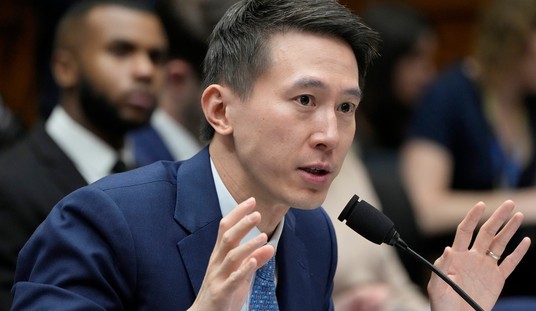Arizona senator Jeff Flake became the latest Republican to voice his opposition to shutting down the federal government in an effort to defund Obamacare.
“There’s a move by my Republican colleagues to use the continuing resolution to defund Obamacare,” Flake said at a local Chamber of Commerce breakfast this week. “I would love to defund Obamacare, but the continuing resolution is not the mechanism.”
He continued to assert that the health-care law will “be a continual drag of the economy” and that recent delays show it is “falling on its own weight.”
House Speaker John A. Boehner said Thursday that he plans to avert a government shutdown at the end of September by passing a “short-term” budget bill that maintains sharp automatic spending cuts, known as the sequester…
[B]y making clear his intention to keep the government open, Boehner signaled that he is not inclined to stage a white-knuckle showdown over the fate of Obamacare right when lawmakers return to Washington on Sept. 9 after the summer break.
While Boehner did not explicitly rule out using the CR for an Obamacare fight, other sources on the call said it was clear he preferred not to use the spending bill to draw a line in the sand. “He didn’t rule it out, but indicated to members that defund through CR is not the best strategy,” a second source said…
On Obamacare strategy:
“We will also continue to implement the plan to stop Obamacare that I outlined last month. The delays the administration has been forced to implement in the health-care law have given us a golden opportunity to talk about fairness: “If big business gets relief from the president’s health-care law, families and small businesses should, too.” This message strikes a chord with Americans. When people hear it, it resonates. The president has already signed seven bills delaying or repealing parts of his health-care law. We’re going to keep the pressure on the president and Senate to act on the delay bills that passed the House in July with significant bipartisan support. You may have seen Shelly Moore Capito do this in Saturday’s GOP weekly address. We’re going to keep holding votes that chip away at the legislative coalition the president is using to force Obamacare on the nation.”
Republicans are looking ahead to their other major opportunity this fall, when the Treasury hits the debt ceiling in October or November. Reuters reported Tuesday night that House leadership was considering using that point “as leverage to try to delay the law’s implementation”; the Huffington Post spoke to an aide from majority leader Eric Cantor’s office who hinted at a similar strategy, saying, it’s “not repeal” but “potentially the individual mandate delay and codifying the business mandate delay — and perhaps other aspects” that they’re looking at…
Why exactly House leadership is insisting on moving this fight to the debt ceiling rather than the continuing resolution isn’t clear, and does present a problem if they’re serious about trying to get an Obamacare delay: Klein is exactly right that the debt ceiling is a much bigger bomb to set than the CR (though next time Republicans really do threaten to shut down the government, you can bet liberals will compare it to a lot worse than a case of the flu). Thus, House leadership is almost definitely not actually willing to let it go off, because they understand the economic consequences could well be as bad as Klein says they would be; their strategy resides on convincing Democrats that they can’t control their own caucus.
Thus, it’s not even clear the debt-ceiling threshold is actually a politically credible threat anymore for Republicans, and they capitulated on it, albeit for a shorter period of time, last time it came up – so why pick the Obamacare fight over it rather than government funding?
Meadows says he would back an attempt to delay the implementation of Obamacare by linking it to a debt ceiling hike. “I’ve gone out of my way to say this is one strategy and about 80 of us believe in it, but I’m open to others. Leadership has a concern, as do I—they don’t want side effects that would hurt people, and a government shutdown could do that,” he says. “It’s overwhelming in my town halls—they’re saying we’ve got to do something, we’ve got to stop this, whether it’s [my] strategy or another one.”…
In some respects, including Obamacare in the negotiations this fall is a fight Republicans win just by having it. Much of the reporting out of Washington in coming weeks will focus on the struggle over the budget and the debt ceiling. By adding Obamacare to that debate, Republicans will force the White House—and vulnerable Democrats in Congress—to defend the law at precisely the time they’d like to avoid it. Even if Republicans “lose” in this scenario—if Obama refuses to consider delaying any more of Obamacare—at a minimum they will have bought leverage for other parts of the negotiation and provided voters with a clear reminder of who owns the coming chaos.
A swelling coalition of conservative activists—card-carrying members of the “repeal ObamaCare” campaign—are lighting up the movement with a different approach. The plan aims to leverage public support, play on Democrat weaknesses, and, most notably, sidestep a shutdown fight that would damage the GOP even as it failed to kill the law. Meet the “Delay coalition.”…
The Delay strategy is at least aimed at an achievable goal. Its outlines are contained in a letter engineered by Heather Higgins, CEO of Independent Women’s Voice. The letter was crafted with the aid of influential repeal activists—Phil Kerpen at American Commitment, Grover Norquist and Ryan Ellis at Americans for Tax Reform, the Galen Institute’s Grace-Marie Turner, Jim Capretta, Ken Hoagland, Avik Roy, the list rolls on—and now has more than 40 signatures. The letter calls on congressional Republican leaders to use one of this fall’s legislative fights to impose a one-year delay of ObamaCare’s individual mandate, exchange subsidies and taxes.
The political calculus is that delay, unlike defund, pushes Democrats to do something that many are already inclined to do. The president himself has endorsed delay for key parts of the bill—the employer mandate, out-of-pocket-caps, income verification requirements. Unions, the bedrock of the liberal base, are demanding wholesale changes in the law. Vulnerable Senate Democrats know the ObamaCare exchanges are a pending disaster, and they are terrified of political fallout. Twenty-two House Democrats in July voted with Republicans to delay the individual mandate.
An ObamaCare delay, the coalition argues, is also in line with public opinion. Whereas shutdown would prove a complex and messy PR job, the public is already highly educated on the big ObamaCare issues. A majority opposes provisions like the individual mandate, and is worried by the exchanges. The president’s own delays have handed Republicans powerful messaging tools. They can enlist the public to pressure Democrats to grant individuals the same mandate reprieve Mr. Obama has gifted to business, and to delay exchanges that lack the verification and security procedures necessary to protect taxpayers and confidential information.
Former Vermont Gov. Howard Dean on Thursday described Republican Sen. Ted Cruz and others who support threatening a government shutdown in order to defund Obamacare as “irresponsible” and “petty, radical-right people.”
“We can do better this, and I think the American voters are going to throw these people out,” he said on CNN’s “The Lead with Jake Tapper.” “If they keep doing this, the impossible may become possible. We could take back the House in 2014.”
In Texas this week, Cruz is holding town halls rallying supporters around the idea of urging Congress to strip money for the president’s signature health care plan before voting on the next funding measure in September.
But Dean argued “people do not want to put up with this kind of stuff” and “it’s about time Ted Cruz started thinking about America and not himself.”
If anything, Republicans want their party to be more conservative, the Pew poll finds.
Given the choice between a more moderate course and a more conservative one, 54 percent choose a more conservative one, while 41 percent choose moderation.
And asked about whether their party has compromised too much, too little or just the right amount, Republicans split into three pretty equal camps. Just 29 percent say it hasn’t compromised enough…
As we’ve written before, if you’re a GOP leader or a potential presidential candidate, we’re not sure what you take away from these numbers — apart from that it’s probably best to err on the side of being more conservative.
“[N]ow what we’ve got is Republicans talking about the idea that they would shut down the government — bad for the economy, bad for not just people who work for the government, but all the contractors who — and the defense folks and everybody who is impacted by the services that they receive from the federal government, we should shut that down, because Republicans, after having taken 40 votes to try to get rid of Obamacare, see this as their last gasp.
Nobody thinks that’s good for the middle class. So the question is ultimately, if you are putting the American people first, if you are prioritizing them, then this shouldn’t be that difficult. And I’ve made this argument to my Republican friends privately, and, by the way, sometimes they say to me privately, ‘I agree with you, but I’m worried about a primary from, you know, somebody in the Tea Party back in my district,’ or, ‘I’m worried about what Rush Limbaugh is going to say about me on the radio. And so you got to understand, I’m — it’s really difficult.'”
Click the image to listen.









Join the conversation as a VIP Member